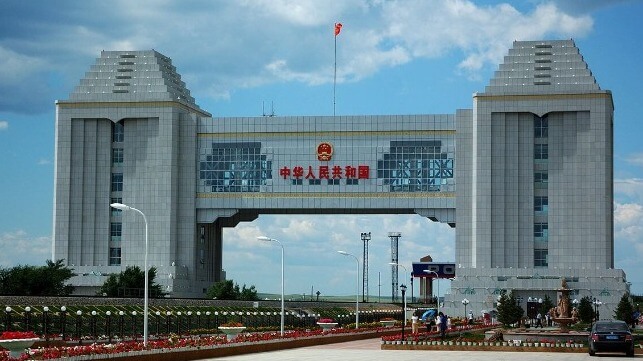Russian Invasion Inflicts Collateral Damage on China's BRI Agenda

China is reluctant to condemn Russia’s invasion in Ukraine. With a close diplomatic relation with Kremlin, Chinese officials have refused to call Russia’s war in Ukraine an “invasion” or even impose any sanctions. Last week, China also abstained from a UN Security Council vote condemning the invasion of Ukraine.
It is a classic case of China attempting to sit on the political fence. However, it could be a costly compromise for China’s BRI (Belt and Road Initiative) outreach in Eastern European countries. This region has been China’s entry point into Europe, enjoying a huge BRI investment portfolio.
As the EU and the U.S. intensify economic sanctions to Russia, the operations of the New Eurasian Land Bridge - also dubbed the Iron Silk Road - will be hampered. The railway corridor is an important branch of the BRI, helping to bring Chinese goods to European consumers. It consists of a network of railways that span two continents, departing from China, passing through Central Asia and finally arriving in Western Europe. With almost half of the routes passing through Russia, it will definitely come under pressure from ever-increasing sanctions.
“Decreased demand for Chinese exports because of the higher energy prices and geopolitical anxieties, combined with a ban on goods crossing Russia via the New Eurasian Land Bridge, a container crisis, supply chain issues and maritime transport concerns could provide the final stroke for China’s annual growth target in its most politically important year,” noted Andreea Brinza, Vice President of the Romanian Institute for the Study of Asia-Pacific (RISAP), in an article for Foreign Policy.
In 2021, the railway transported high-value goods worth a total of $74.9 billion, making it a viable alternative to maritime container shipping, which suffered operational inefficiencies due to the pandemic. The line serves 183 cities in 23 European countries. According to data by the China State Railway Group, a record 1.46 million TEU was transported along the Eurasia route in 2021. Some analysts believe that the high maritime shipping delays and freight costs drove many exporters and importers to explore railway transport as an option.
In addition, Poland acts as an important node to the railway infrastructure. With most corridors passing through Poland, its diplomatic ties with China have strengthened. Polish President Andrzej Duda was the only European head of state - besides Luxembourg’s Grand Duke - to attend the recent opening ceremony of the Winter Olympics in China. Duda’s talk with China’s President Xi Jinping have centered on transforming Poland into China’s logistical “gateway to Europe.”
Poland is now opening borders to thousands of Ukrainian refugees, many of whom blame China for supporting Putin. As the EU unites to call out Putin’s aggression in Ukraine, a pan-European sentiment against China could emerge for refusing to condemn Kremlin’s war. This development could affect Poland’s attitude to China.
Meanwhile, as the war continues, part of the railway service that passes through Ukraine has been suspended or diverted. Ukrainian ports are also closed, as the Black Sea is now an active war zone. This has implications for Chinese trade: since Ukraine signed into BRI in 2017, China had become its largest trading partner. By 2019, China was the top importer of Ukraine’s barley and iron ore.
In 2016, COFCO - China’s largest agricultural conglomerate - built a $75 million grain and oil transfer terminal at the port of Mykolaiv on the Black Sea. A year later, Chinese engineers finished upgrading Ukraine’s busiest port, Yuzhny, on the Black Sea. Before the war started, China and Ukraine had signed BRI-related construction contracts worth nearly $3 billion in the transport and energy sectors.
In the end, Putin’s war may be more costly to China than most other foreign nations. The Russian invasion is rolling back much of the political goodwill and economic development that BRI has created in Europe. Judging by the size of China’s investment portfolios in Ukraine and Eastern Europe, it could be in Beijing’s interest to mediate peace talks between Russia and Ukraine.

that matters most
Get the latest maritime news delivered to your inbox daily.
“Diplomacy cannot only be European or American. Chinese diplomacy has a role to play here,” said EU’s foreign Policy Chief Josep Borrell, in an interview with Spanish daily El Mundo last Friday.
Top image: Manzhouli Gate (Leon Li / CC BY SA 2.0)
The opinions expressed herein are the author's and not necessarily those of The Maritime Executive.
